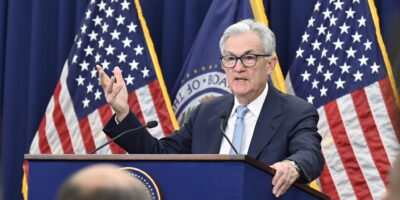Monetary equilibrium and monetary institutions
I am very excited to join the Sound Money Project and contribute to the understanding of monetary systems that are conducive to economic stability. To begin, I would like to describe how I think about monetary theory at a general level, and how this informs the study and analysis of monetary institutions.
Money is incredibly useful in reducing the costs associated with exchange, and in providing a common denominator in which various goods and services can be priced. Without this, apples-to-apples comparisons of various economic projects’ worth would be impossible. However, this also presents a challenge for money-using economies. Because all goods and services are priced in terms of money, money has no market of its own in which it can be independently priced. Thus, there is no simple mechanism that can adjust to equilibrate the market for money balances. If the money market is in disequilibrium, the only way it can be brought back to equilibrium is through costly relative price changes all throughout the economy. This insight follows from the monetary studies of F.A. Hayek and Leland Yeager, whose pioneering contributions suggest that for money to be neutral—to serve as a facilitator of exchange, without impeding exchange—excess supplies of, or demand for, money must be prevented from having an independent effect on the pricing process for the economy’s goods and services.
Monetary disequilibrium can have serious macroeconomic consequences. For example, if a sudden and unexpected excess demand for money arises, the result can be unsold goods and falling prices across the economy—the classic symptoms of a recession. Many economists would mistakenly identify this as an excess supply of goods and services in general. In fact, it is an excess supply of all of the goods and services other than money, caused by the excess demand for money itself. If that excess demand for money could be met with an offsetting increase in its supply, this unfortunate process could be avoided. But how would this actually be done?
This is where questions of theory become questions of history. The problems posed by monetary disequilibrium and monetary non-neutrality must have an institutional solution, if they are to be solved in the real world. The question that follows is, what monetary institutions best maintain monetary equilibrium, and hence macroeconomic stability? The dominant answer of the economic profession has been central banking. Given central banking’s lackluster historical performance, we should be quite skeptical of this claim. For my part, I prefer free (laissez faire) banking systems—decentralized systems of privately-created money, rather than centralized systems of publicly created money. The work of scholars such as Lawrence White and George Selgin has shown that banks in such a system have a profit-maximizing incentive to undue monetary disequilibrium by altering the supply of money to meet changes in its demand. We do not have to rely on the wisdom and benevolence of central bankers to achieve macroeconomic stability. Private banks, issuing their own money, can do this on their own.
Of course, we are unlikely to transition to a free banking system anytime soon, so it is still worthwhile to ask how central banks ought to behave, so long as they exist. But this should not prevent us for posing radical alternatives to the current monetary orthodoxy. Too much is at stake to be bound by the politically feasible, instead of pursuing the economically sensible.









